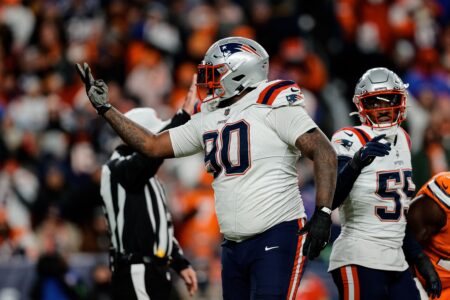- Joined
- Sep 13, 2004
- Messages
- 37,617
- Reaction score
- 16,395
It seems that there are 2 points.
1) Very few teams should be counted out of the playoffs (say 6); almost everyone has enough tlent to get that far.
2) That the minor disparity in talent in the 20 potential playoff teams is more than made for by solid coaching.
My conclusion is that owners should pay coaches a lot more and players a lot less.
We are spoiled. We have the best ownership, coach and quarterback in football. So, from where we sit it seems that talent doen't matter. I think that talent matters a lot. As I indicated before, talent includes the ability to learn, to recognize, to cooperate well with others, and to have discipline in your apporach to the game. That is part of football talent.
To be more direct, being a TEAM player and being able to learn the playbook is part of football talent.
1) Very few teams should be counted out of the playoffs (say 6); almost everyone has enough tlent to get that far.
2) That the minor disparity in talent in the 20 potential playoff teams is more than made for by solid coaching.
My conclusion is that owners should pay coaches a lot more and players a lot less.
We are spoiled. We have the best ownership, coach and quarterback in football. So, from where we sit it seems that talent doen't matter. I think that talent matters a lot. As I indicated before, talent includes the ability to learn, to recognize, to cooperate well with others, and to have discipline in your apporach to the game. That is part of football talent.
To be more direct, being a TEAM player and being able to learn the playbook is part of football talent.
But that's the point. You don't need that much talent to make the playoffs, and the salary cap and free agency ensure that no team has a huge talent disparity over the others. It's not like the 1960's Packers, or even the 1990s Cowboys. You can't count on 31 teams having Matt Millens for GM making inept picks year after year - teams will amass talent, and can catch up pretty quickly in that department. But what you do with that talent is another matter altogether.

















